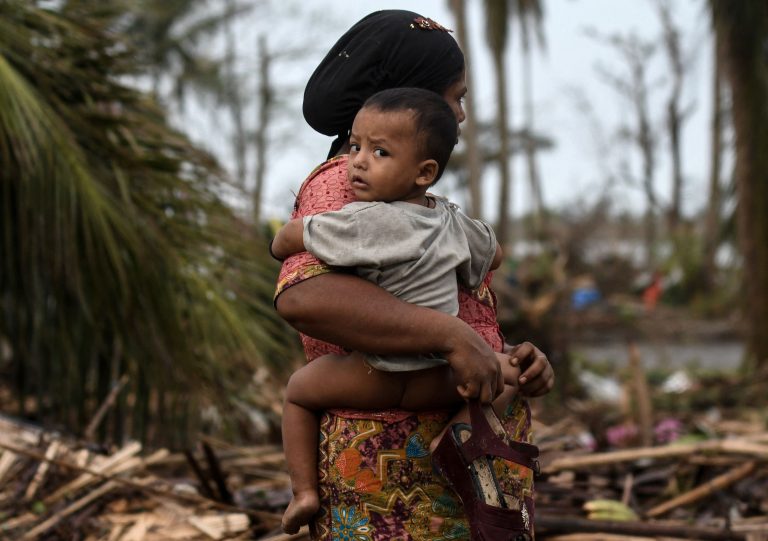After Cyclone Mocha raged through Myanmar’s Rakhine state, possibly killing hundreds, survivors have been left waiting for rescue and relief. However, international aid is slow coming as the country’s ruling junta has yet to approve entry, stalling efforts to save lives.
Struggle of survival
According to al-Jazeera, relief efforts are being made in northwestern Myanmar and Bangladesh. One humanitarian group also reported that hundreds of people were killed in the cyclone’s path, taking with them several Rohingya camps.
More than two million people lived in the areas where Cyclone Mocha stormed through; many of them being Rohingyas stranded in Rakhine after years of violence.
Rakhine-based Partners Relief and Development said that several Rohingya camps near Sittwe were torn apart, with the “death toll in the hundreds.” Rohingya activist Aung Kyaw Moe said on Twitter that the death toll in Sittwe alone was 400.
However, the military regime, after declaring Rakhine a “disaster area”, reported much fewer casualties, with Myawaddy Channel reporting only three deaths.
Success
You are now signed up for our newsletter
Success
Check your email to complete sign up
Hundreds of homes and shelters were destroyed, communication was hindered, and there are people both missing and dead, the BBC wrote. Roads were blocked by collapsed trees and power pylons. Rain continued to fall as of May 12, dampening efforts even further.
There are even reports that the Myanmar military are conducting attacks on villages following the storm.
“Myanmar is facing a storm on many fronts, with reports that the Myanmar army attacked villages in other regions while Cyclone Mocha unfolded in Rakhine state. The needs of families continue to be great,” Partners Relief and Development added on Twitter on Tuesday.
al-Jazeera interviewed several people who experienced the storm and its aftermath, showcasing the struggles faced by both civilians and humanitarian workers.
READ MORE:
- Mozambique to Be Struck a Second Time by Record-Breaking Cyclone Freddy
- New Zealand: Cyclone Gabrielle Brings Destruction Not Seen in a Generation
- Two Boats Sink Off the Coast of Tunisia, Twenty-Nine Migrants Perish
Aid stalled
Several days after the cyclone, aid groups attempted to enter through the disaster zone, only to be held back by the military junta, the New York Times wrote. They fear that the death toll will continue to grow due to starvation, thirst and disease.
“We have asked for unrestricted access to affected communities,” Pierre Peron, spokesman for the United Nations Office for the Coordination of Humanitarian Affairs (UNOCHA), said, adding that agencies were already prepared to deliver food, medicine and other supplies.
“To deliver, we will need access to affected people, relaxation of travel authorization requirements and expedited custom clearances for commodities.”
The junta has yet to publicly respond to criticism of its blocking of international aid. They said they will be sending aid, but survivors told the New York Times that they have not received any help.
Cyclone Mocha and Rakhine
Cyclone Mocha was one of the most powerful storms to hit the region, surging through Myanmar and Bangladesh with winds of about 209 kilometers per hour. Rainfall and a storm surge of between three and 3.5 meters caused floods to sweep through the low-lying area, laying waste to Sittwe and surrounding areas. Three landfalls were made over the course of the storm.
The storm ravaged through the Rakhine state, where around 600,000 Rohingya Muslims live, with nearly 150,000 living in displacement camps.
“Early reports suggest that damage is extensive and needs among already vulnerable communities, particularly displaced people, will be high,” UNOCHA said on Monday.
But the storm is hardly the only problem for the Rohingyas. Since the 2021 military coup, the junta has intensified attacks on them. Conflict and displacement has been rampant with both the military and the United League of Arakan (ULA) vying for control over the state.

















